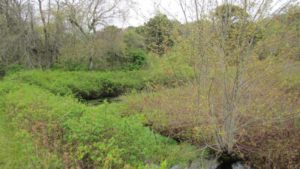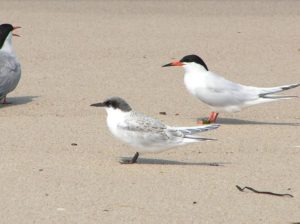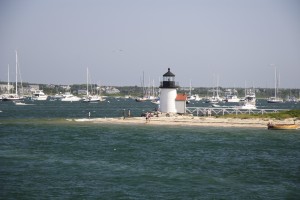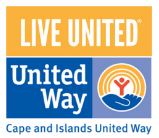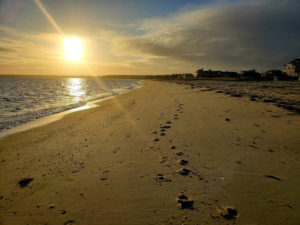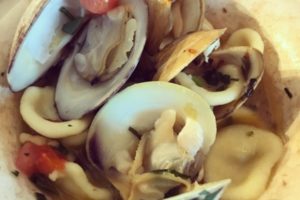 PORTLAND, Maine (AP) — The nation’s clam haul is steadily dwindling, and a push to try to save it in the state with the largest industry is dividing harvesters, conservationists and scientists who question whether proposed new measures will help.
PORTLAND, Maine (AP) — The nation’s clam haul is steadily dwindling, and a push to try to save it in the state with the largest industry is dividing harvesters, conservationists and scientists who question whether proposed new measures will help.
Maine is the country’s leading producer of soft-shell clams, which are steamed or used to make New England staples such as fried clams and clam chowder. The harvest has fallen in recent years to the point where the nationwide haul for 2017 and ’18 was the lowest for any two-year period in more than 60 years. In Maine, the shellfish business is challenged by growing populations of predators that eat clams and a declining number of clammers.
The Maine Legislature is set to consider a bill that would allow municipalities to establish their own minimum and maximum size limits for shellfish. Proponents, including presenting Democratic Rep. Joyce McCreight, said the change would allow towns to set stricter parameters than the state’s minimum of 2 inches.
The new limits would allow towns to protect larger clams, which have the ability to reproduce more as they get older and bigger, McCreight said.
“They can leave clams in the ground. Possibly, that would produce more seed and allow the clams to reproduce,” she said, adding that increasing the harvest is “definitely the goal.”
McCreight’s proposal is up for a public hearing Tuesday that clammers said would be well attended — but the harvesters aren’t necessarily all on the same page about it.
Wendell Cressey, a clammer who lives in Harpswell and digs clams in Harpswell and Arrowsic, said the current statewide minimum standard of 2 inches is adequate.
“By leaving a clam until its 2 inches, it has a chance to seed out more clams, which makes a future,” he said.
But Chad Coffin, a Freeport clammer who is president of the Maine Clammers Association, said it’s a better idea to lower the minimum size to 1 1/2 inches. Protecting the largest clams makes sense, he said. But when a clammer discards a clam that is too small to be legally harvested, it runs the risk of being eaten by a predator before it reaches market size, Coffin said.
Both clammers agreed the state’s harvest is in rough shape.
“The biggest thing to understand is, overall, clam landings are terrible,” Coffin said.
Skeptics of the proposal also cite concerns about the piecemeal approach of applying town-by-town regulations. Brian Beal, a professor of marine ecology at the University of Maine at Machias, said he supports lowering the minimum harvesting size of clams, which is not part of McCreight’s proposal, and placing a maximum standard, which is. And, he said, the new rules need to be applied coastwide.
The clams are susceptible to predators such as green crabs and milky ribbon worms that have become bigger problems as coastal waters have warmed, Beal has said.
“Those clams are being consumed by predators that are thanking the state of Maine for allowing them to have a meal. I want to give them to the clammers. I want people in the state of Maine to benefit from those clams,” Beal said.
Maine soft-shell clams are typically called “steamers,” and they’re harvested in tidal mud from towns such as Scarborough and Yarmouth in southern Maine to Cutler and Lubec near the border with Canada. They’re harvested in some of the state’s most rural coastal areas, and also in its seaside cities.
Clammers in Portland, the state’s largest city, brought in some $35,000 in clams last year, when the state harvest was worth nearly $13 million at the docks.
The state’s clammers harvested a little more than 1.45 million pounds of clam meat in 2018, up slightly from the previous year. But the 2017 total was the state’s lowest since 1930, and last year’s was still the least since 1959.
The nationwide harvest has fallen as Maine’s has, with the harvest also down from a decade ago in other clamming states such as New York and Massachusetts.





